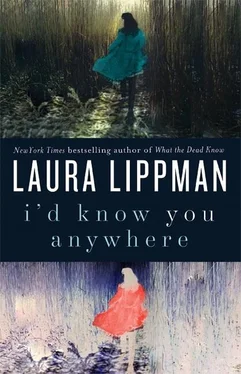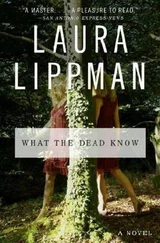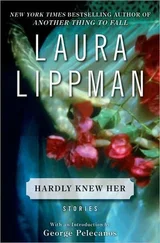“What do you mean?”
“Nothing. I don’t know. A person gets a little ornery, at times, living as I do. I’m not a saint. And I’m offering you something pretty big, Elizabeth. But it’s only for you, no one else.”
“Walter—I need to go.”
“Right—there’s soccer practice on Wednesday.”
How do you know that? But she didn’t ask. He wanted her to ask, she was sure of that much. Still, he knew he had rattled her. The pause alone gave her away.
“Good-bye, Walter. We’ll talk soon.”
“In person, I hope. Eventually.”
“We’ll see.” But, again, she had paused, given herself away. He knew she was considering it.
THE WOMAN IN THE WINDOWseat looked over Jared Garrett’s shoulder at the notes he had arrayed on his tray table. He had hoped she would. He had taken out his index cards because he was bored and restless, his mind churning from the events of the day. It seemed primitive to him that Amtrak didn’t provide wireless service on its trains. He would have been better off driving, after all, but he had assumed he could do e-mail en route. Now he was stuck on this wheezy old regional—only a sucker or a fool would pay extra for the Acela, which cut a mere ten minutes off the trip—with another forty minutes before he arrived back in Philadelphia. He could actually write, he supposed, but it felt odd to write without the option of the “publish” button, waiting to reward his efforts. Of course, the Bowman story was bigger than his blog. He must not waste it there, tempting as it was. He remembered when people criticized him as a cut-and-paste writer because he had managed to deliver his manuscript on Bowman within six weeks of his death sentence in the first trial. That pace seemed positively leaden by today’s standards.
“Colored index cards,” the woman said. “Are you a writer?”
“Yes,” he said. If his wife were here, she would roll her eyes or give an exaggerated sigh. She saw his writing as a hobby, one used to escape her in the evenings, when she parked herself in front of the television to watch reality shows. She wasn’t entirely wrong.
“What kind of books do you write?”
“Nonfiction,” he said. “Usually about crime.”
“True crime?”
“Nonfiction,” he repeated. “Fact crime is probably the best label. One of my books was nominated, once, for best fact crime.” He did not mention the name of the prize because it was not well known, but it was a prize, and he had been nominated for it. And fact crime might not be the most elegant construction, but it was better than true crime . Of course, fact crime was problematic, too, as it sounded almost like a criminal act driven by fact, like a so-called hate crime. But true crime had acquired a nasty taint over the years.
“Would I have read any of your books?”
The inevitable question. He wanted to turn it on her, say, “How would I know what you’ve read or not read? Are you a world-famous reader?”
Instead, he said: “My best-known book was about the Walter Bowman case, but that was over twenty years ago. I haven’t published for a while.”
“Walter Bowman?” The name clearly didn’t resonate with her. But then—Walter Bowman didn’t resonate. Jared always felt that Walter’s lack of charisma had dampened interest in his book, kept it from becoming the success it might have been. If only he could have written about someone like Charlie Manson or Ted Bundy. He had thought he lucked out, all those years ago, when the big guns didn’t come to Virginia. Turned out the big guns knew what they were doing.
But now—now the story had its long-missing climax, and it was going to be all Jared’s. Oh, other journalists might write about the execution. But no one would get to talk to Walter. He had Barbara LaFortuny’s word.
“A spree killer, back in the eighties,” he said. “Probably a serial killer, but that was never proven.”
“Is there a difference?”
He began to explain but almost immediately felt the woman’s attention drifting away from him. He interrupted himself, pointed to the cards arrayed before him: “I should get back to my work,” he said.
“Of course,” she said with apparent relief. “I’m going to go to the café car.” He couldn’t help noticing that she took her computer bag and purse. She would probably stay in the café for the rest of the trip, drinking white wine, sizing up the men. She was on the prowl, Jared decided, a lonely woman on a train. He was grateful for his thirty-year marriage, his solid life with Florence, even if she did roll her eyes at him from time to time. A woman alone—that was a sad thing. Barbara LaFortuny had seemed pathetic to him, although he had tried not to betray this. No one liked to be pitied.
He had Googled her, of course, as soon as she had e-mailed him. She had made a point of telling him that she wasn’t some sad sack, pining for Walter, but he thought she was kidding herself. Walter was good-looking, at least in photographs. Less so in person, but she had never seen him in person. She may not admit it, but LaFortuny was motivated by something more than a principled stand against the death penalty.
Still, it seemed clear, after several e-mails, that she really did have something to offer. He had taken a sick day from work, reasoning that his sick days were one of his remaining benefits in a world of shrinking benefits and he shouldn’t be penalized just because he was healthy. By not taking his sick days, he was cutting his own pay, in a sense. But the first half of the day, spent driving around sites he had long ago explored on his own, had been a big honking disappointment, and he had begun to feel that he was being taken, especially when she drove out to a large county park.
“Walter Bowman’s never been linked to this area,” he said, thinking of his own obsessive map, how he had examined every missing person case. The true-crime bloggers who followed the Bowman case fell across a wide range, from total apologists who would deny even the two obvious murders to those who basically put every missing teenage girl, 1980 to 1985, in his column. Jared was one of the more moderate, believing that Walter could be linked to at least four unsolved murders and four missing person cases in the Mid-Atlantic region. Jared had his own formula based on distance, opportunity, and victim. Distance: Walter Bowman had never been more than three hundred miles from home in his entire life and, per Elizabeth Lerner’s testimony, he seemed to rotate around a fixed point in his mind, staying in Virginia, Maryland, and West Virginia. Opportunity: He had nonconsecutive days off and, before he killed Maude Parrish, had never spent a single night away from home. Finally, victims: Both were young, under sixteen, and not the least bit streetwise, so throwing in every random hooker killing was really missing the mark. Hookers didn’t fit Walter Bowman’s pattern.
But then—neither did Elizabeth Lerner, not in the looks department.
At any rate, he had known, when Barbara turned into this suburban park, that it had no connection at all to Bowman and he was beginning to get a little angry at being suckered this way. He was on a six-thirty train, and that was by Barbara LaFortuny’s instruction. She said she had tickets to a play, or something. That had been over lunch, at a vegan place called Roots, which hadn’t exactly thrilled Jared.
“Sounds like you have a nice life,” he said, just to make conversation, hoping to conceal his dismay at the menu offerings.
“I do,” she said. “Being attacked was one of the best things that ever happened to me. Not because it freed me from working, but because it showed me that my life was empty, purposeless, and that was through no one’s fault but my own.”
Читать дальше












